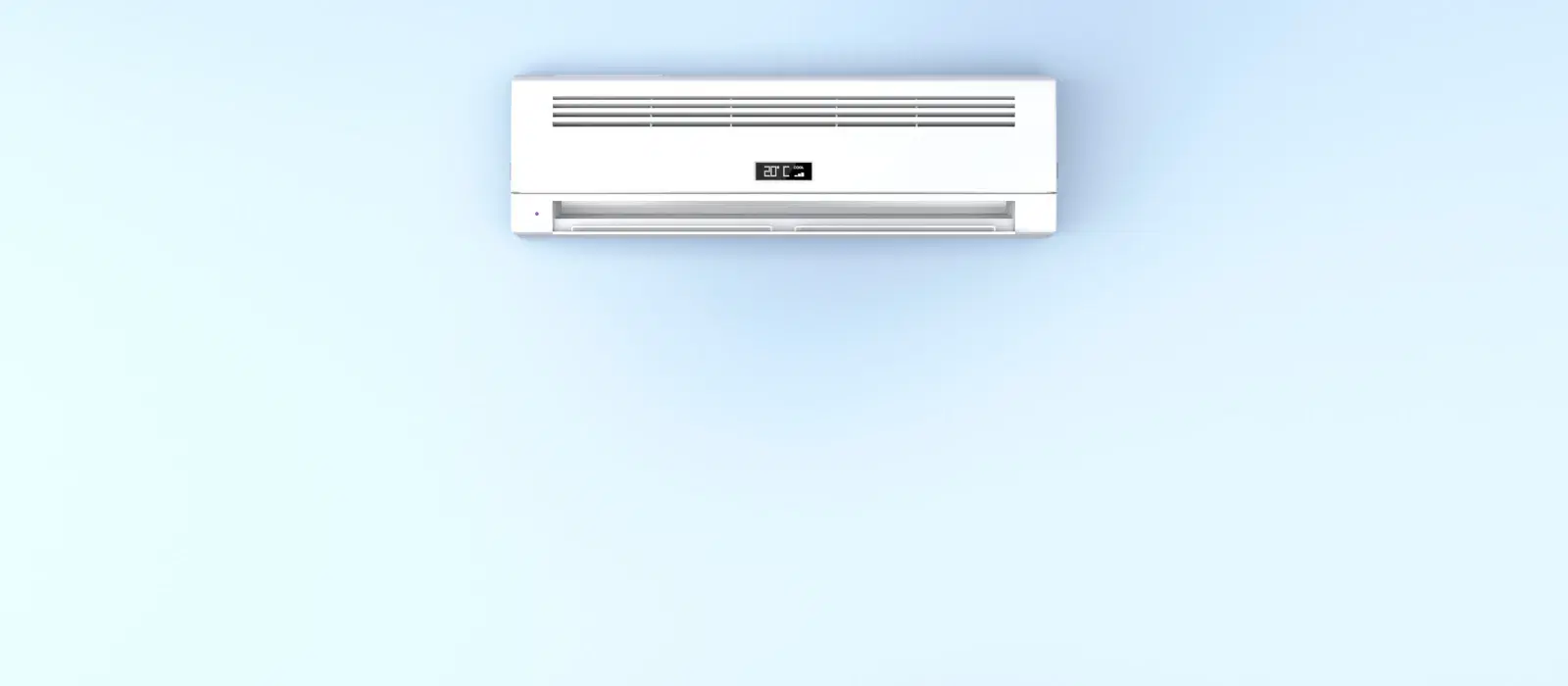
Home Appliances
•05 min read

As the summer months approach, many of us start to dread the inevitable rise in electricity bills. With air conditioners running almost non-stop to keep our homes cool, it's essential to understand how much electricity your air conditioner consumes. Knowing this can help you manage your energy usage better and potentially save on costs. In this guide, we'll explore how to calculate your air conditioner's electricity usage, the factors influencing it, and tips to reduce your AC electricity consumption.
Power consumption refers to the amount of electrical energy used by an appliance over time. For air conditioners, this is a crucial metric as it directly impacts your electricity bills. Several factors affect an air conditioner's power consumption, including its wattage, the British Thermal Unit (BTU) rating, and the Energy Efficiency Ratio (EER).
Wattage: The rate at which your AC unit consumes electricity.
BTU (British Thermal Unit): A measure of the cooling capacity of your air conditioner.
EER (Energy Efficiency Ratio): The ratio of the cooling capacity (in BTUs) to the power input (in watts). A higher EER indicates a more energy-efficient unit.
To calculate your air conditioner's electricity usage, follow these steps:
Identify the wattage of your AC unit. This information is usually available on the unit's nameplate or in the user manual.
Determine the number of hours your AC runs daily.
Use the formula: Wattage x Hours Used / 1000 = kWh (kilowatt-hours). This will give you the daily electricity consumption.
Let's say you have a 1.5-ton air conditioner with a wattage of 1500 watts. If you run it for 8 hours a day, the calculation would be:
1500 watts x 8 hours / 1000 = 12 kWh
This means your AC consumes 12 kWh of electricity daily.
(3)-adc4b8c8-921e-4fa0-98fb-80693e5117f2.png&w=3840&q=75)
The type of air conditioner you have significantly impacts its power consumption. For instance, split systems are generally more efficient than window units. Additionally, inverter ACs consume less electricity compared to non-inverter models.
Room Size: Larger rooms require more cooling power.
Insulation: Well-insulated rooms retain cool air better, reducing the workload on your AC.
Outdoor Temperature: Higher outdoor temperatures increase the load on your AC.
Temperature Settings: Setting your AC to a moderate temperature can save energy.
Maintenance: Regular cleaning and servicing ensure your AC runs efficiently.
Set your AC to an optimal temperature, typically around 24-26°C.
Ensure regular maintenance and cleaning of filters and coils.
Use programmable thermostats to control your AC's operation.
Consider upgrading to energy-efficient air conditioners available at Tata Neu’s Croma for better performance and lower electricity bills.
Did you know that modern air conditioners have significantly improved in energy efficiency? Investing in a new, energy-efficient model from Tata Neu’s Croma can help you save on electricity costs while enjoying superior cooling performance. Plus, with Tata Neu, you can enjoy exclusive benefits like NeuCoins rewards, special EMI plans, and express delivery.
You can find the wattage on the unit's nameplate or in the user manual.
(4)-38fdf8eb-a932-4d15-b973-a4529cc23cec.png&w=3840&q=75)
A 1.5-ton AC typically consumes around 1.5-2 kWh per hour, depending on its efficiency and usage conditions.
Higher star ratings indicate better energy efficiency. A 5-star AC consumes less electricity than a 3-star AC for the same cooling output.
Yes, using a ceiling fan can help distribute cool air more evenly, allowing you to set your AC at a higher temperature and save energy.
Regularly clean or replace filters, ensure the coils are clean, and check for any leaks or blockages in the ducts.
Yes, inverter ACs are generally more energy-efficient as they adjust the compressor speed to maintain the desired temperature, leading to lower power consumption.
Proper insulation helps retain cool air within the room, reducing the workload on your AC and thereby saving energy.
Understanding and managing your air conditioner's electricity usage is crucial for keeping your energy bills in check. By calculating your AC's power consumption and adopting energy-efficient practices, you can enjoy a cooler home without the financial strain. Explore Tata Neu’s range of energy-efficient air conditioners at Croma to find the perfect unit for your needs. With benefits like NeuCoins rewards, exclusive EMI plans, and express delivery, Tata Neu makes it easier and more rewarding to shop for your next air conditioner.
Identify and calculate your AC’s power consumption using the provided formula.
Adopt energy-efficient practices to reduce electricity bills.
Consider upgrading to a more energy-efficient air conditioner from Tata Neu’s Croma collection.
Take advantage of Tata Neu’s exclusive benefits like NeuCoins rewards, special EMI plans, and express delivery for a seamless shopping experience.